How Tech Will Shape the Future of Food in India

Technology and food are evolving so fast that soon, food technology is not going to be about just technology in transporting food, but also tech that’s making and shaping the food we eat and how we are cooking it.
At this moment in time in India (early 2020), the words “food-tech” resound greatly with Zomato and Swiggy. Although they do influence the food supply chain, that’s only one niche sector of technology that’s shaping our food system.
How can we understand food tech? Anyone using technology to transform the dynamics of the food sector comes under the food tech umbrella. Right from smart kitchen appliances, food waste management systems, food safety, ag tech, consumer apps, food processing and of course, food delivery — this sector is a diverse one. Diverse, and growing at a rapid rate.
One of the most exciting things about curating news at Edible Issues is having a glimpse at all the new food innovations out there in India and imagining what the future could be.
Let’s start from where it all begins, ground up. Except in this future we’re soil-less. Agriculture has taken a toll on the environment, and we are seeing increasing soil infertility. We need to re-look at our approach to growing food. That’s exactly what Kisano is doing. Kisano’s Brian and Benjamin Zehr are farmers of the future, and are building vertical urban farmland.
Precision, clean, worry-free food that has reduced impact on the environment than traditional farming is what they aim to grow. Digitally monitoring the entire growth cycle of a plant and controlling the inputs means we have a transparent and trusting agricultural system.
Benjamin believes this is an accurate vision for the future: “It’s a commonly accepted idea that millennials are not cooking as much for themselves anymore. After all, ‘convenience is king.’ However, through our work with Kisano, we have found that there is a growing appreciation for the provenance of food among young and old alike. More than ever, people care about where their food has come from, how clean and nutritious it is, and whether it is grown sustainably.”
Another food group that’s facing some heat right now, politically and ethically, is meat. India is the largest producer for eggs and broiler meat, and the market is expected to grow to Rs 3,775 billion by 2023. Unfortunately, the food safety aspect for this widely consumed meat is extremely lax. Increasing cases of antibiotic-resistant bacteria are worrying.
ClearMeat, founded by Dr Siddharth Manvati, Dr Pawan Dhar, and Kartik Dixit, is India’s first ‘clean chicken’ meat startup. Clean Meat here refers to lab-grown meat, which is the in vitro cultivation of animal cells, rather than meat from slaughtered animals. They are looking to make an impact on the environment, animal welfare and nutrition through their chicken kheema product. The mince is tissue-engineered and ClearMeat is looking to launch this product in 2020.
Some people are squeamish about handling raw meat. Siddharth Manvati feels that a product like this will change the way people culturally understand meat and meat-eating: “Our group focuses on answering/handling both the guilt factor as well as the socio-economic impact. This is a project which is not only close to my heart but also to the other team-members. We understand the importance of animal cells in providing nourishment, but we are also aware of the impact it has on the environment. Our vision is to be able to eat meat of the animal and have the same animal sitting next to us, no harm caused.”
So once we’ve foraged our ingredients or more likely, bought them off an online platform, what’s next?
In the future, we might have to ask Julia. No, not Julia Child but Julia the cooking robot being developed by Nymble Labs, founded by Raghav Gupta and Rohin Malhotra. Although, at the moment, Julia is at robot cooking school, fine-tuning some skills she will soon be able to whip up one-pot meals at the touch of a button, no fuss.
“Similar to what a human being does while cooking — from putting the right amount of ingredients, stirring the food, monitoring, and so on, Julia has the intelligence to look at these things and take action accordingly,” Gupta said.
These companies are building products to focus on a healthy and environmentally sustainable future. They are interesting to read these milestones being achieved in their individual fields. But imagine a future where their products would intersect together on our plates.
Collaboration of food-shaping businesses is vital to what and how we will be eating in the future. And Benjamin believes that the scope is endless, “Through indoor farming and our relationships with the culinary community, we are already able to bring out beautiful flavour profiles in different crops by providing perfect growing environments for plants. Further, by delivering hours after harvest, the nutrition levels are as much as 40% higher than produce sitting on shelves. Collaborations will play a big role in accelerating the development of new crops, producing them close to the point of consumption, and using sustainable growing methods to help provide these foods with minimal water and land.”
These three start-ups are a glimpse of a food tech-filled future that makes us rethink our interactions as eaters and cooks. Will we be sourcing Lab to Fork? How many times will we pick up a pan or use a knife? Could our vegetables be nutritionally personalised for our gut health?
Here’s a recipe to give you a taste of the future.
Recipe: Kheema Mattar
Ingredients
500 g Clearmeat kheema
1 Julia's "Magic Masala" Capsule
5 pods Kisano's peas (Gut Personalised)
Few sprigs Kisano's coriander (to garnish)
Method
Pre-set Julia to cook for 4.
Don't forget to pre-stock on Julia's fair trade-made spice capsules.
Add kheema to slot A. Add Kisano's fresh peas and coriander to slot B.
Load in Julia's OTM Capsule.
Select recipe code 14275.
GUT Recommendation Set the roti maker to ferment for 24 hours.
This recipe tastes exactly the way your mother's great-grandmother used to make. Except with your ingredients today, you saved: A real-life chicken!
And also,
Water 178 litres
CO2 210 kgs
Personal time 48 minutes
Elizabeth Yorke is the co-founder of Edible Issues.
ALSO ON THE GOYA JOURNAL
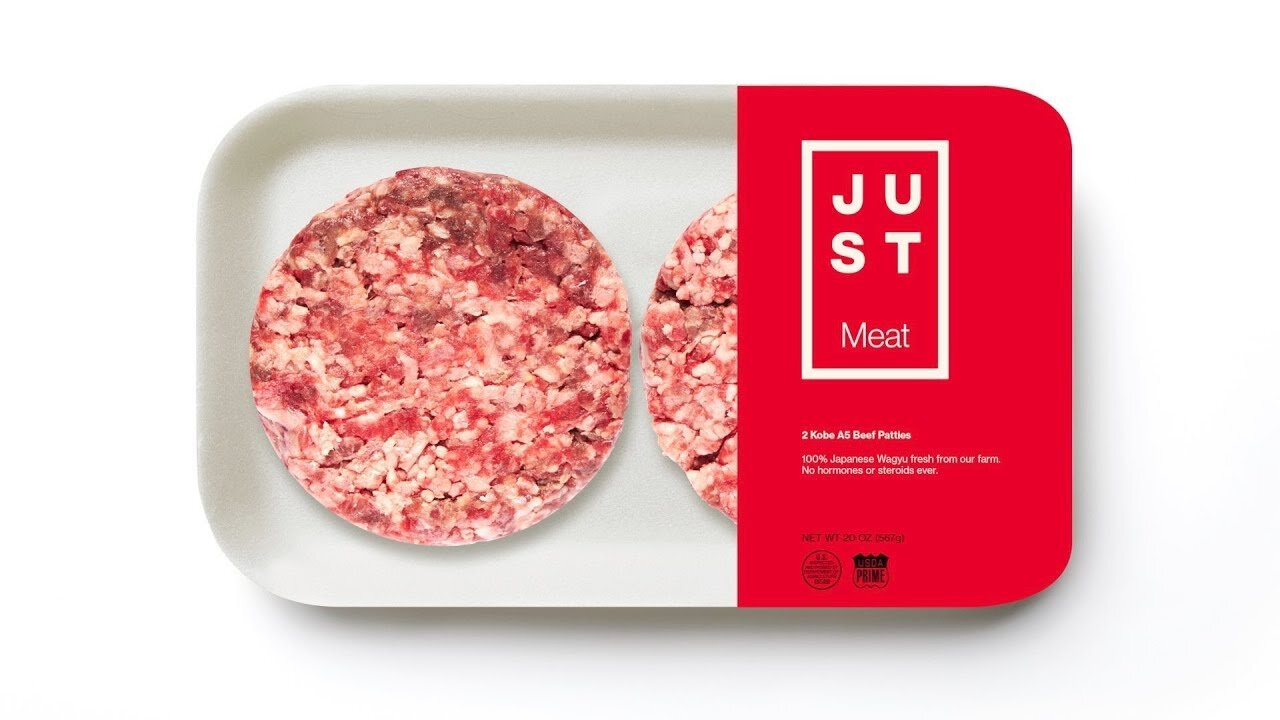
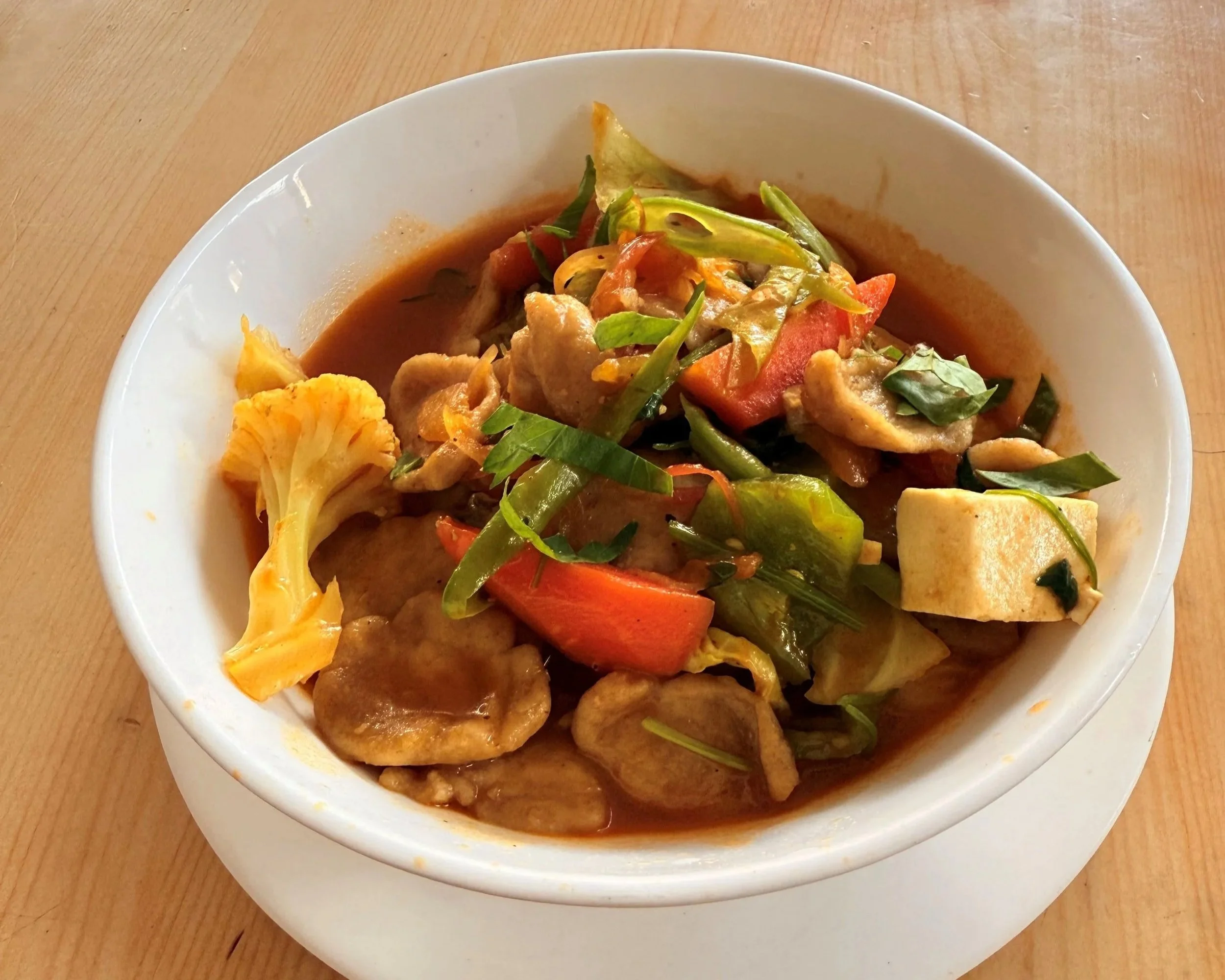
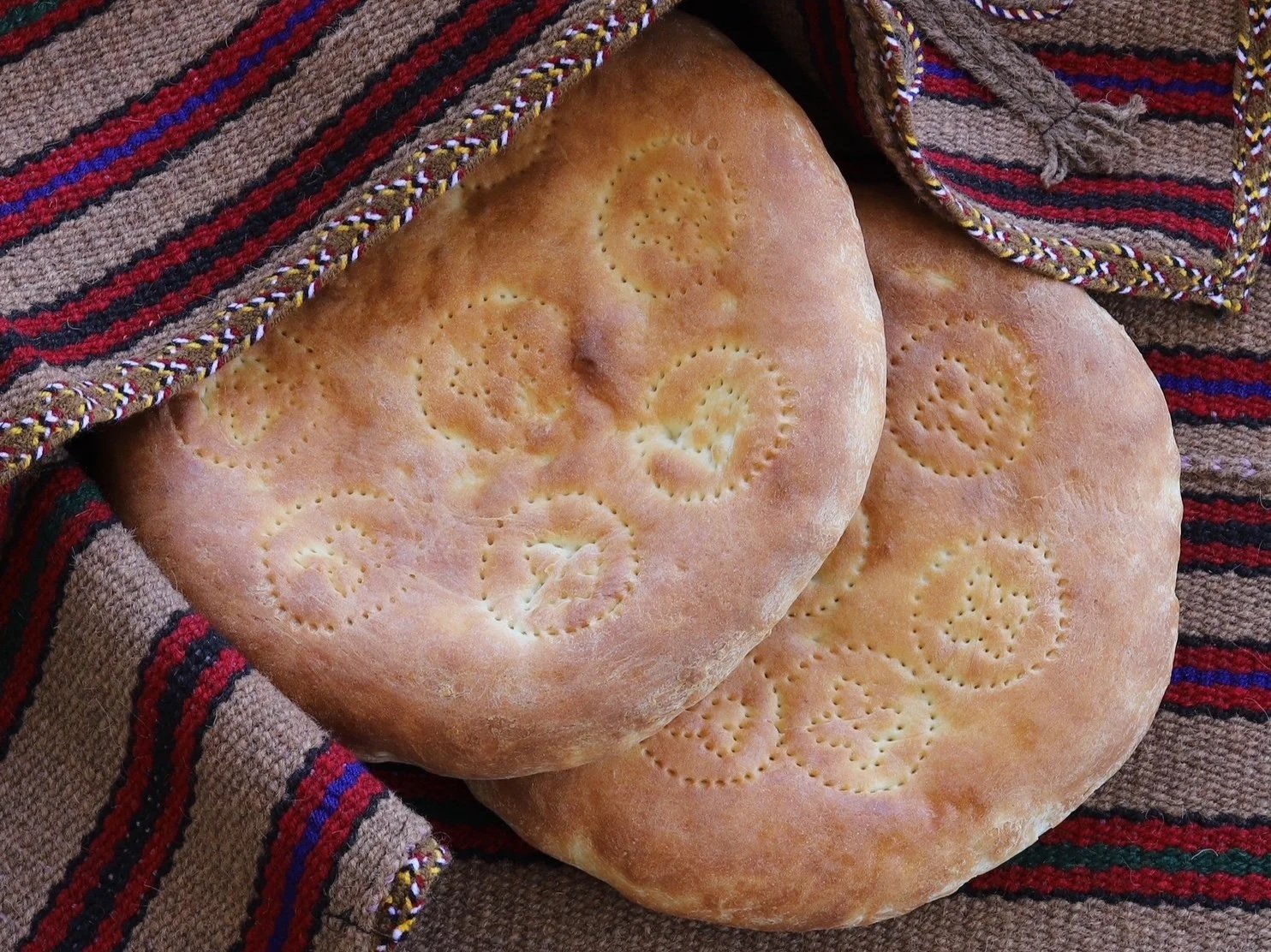
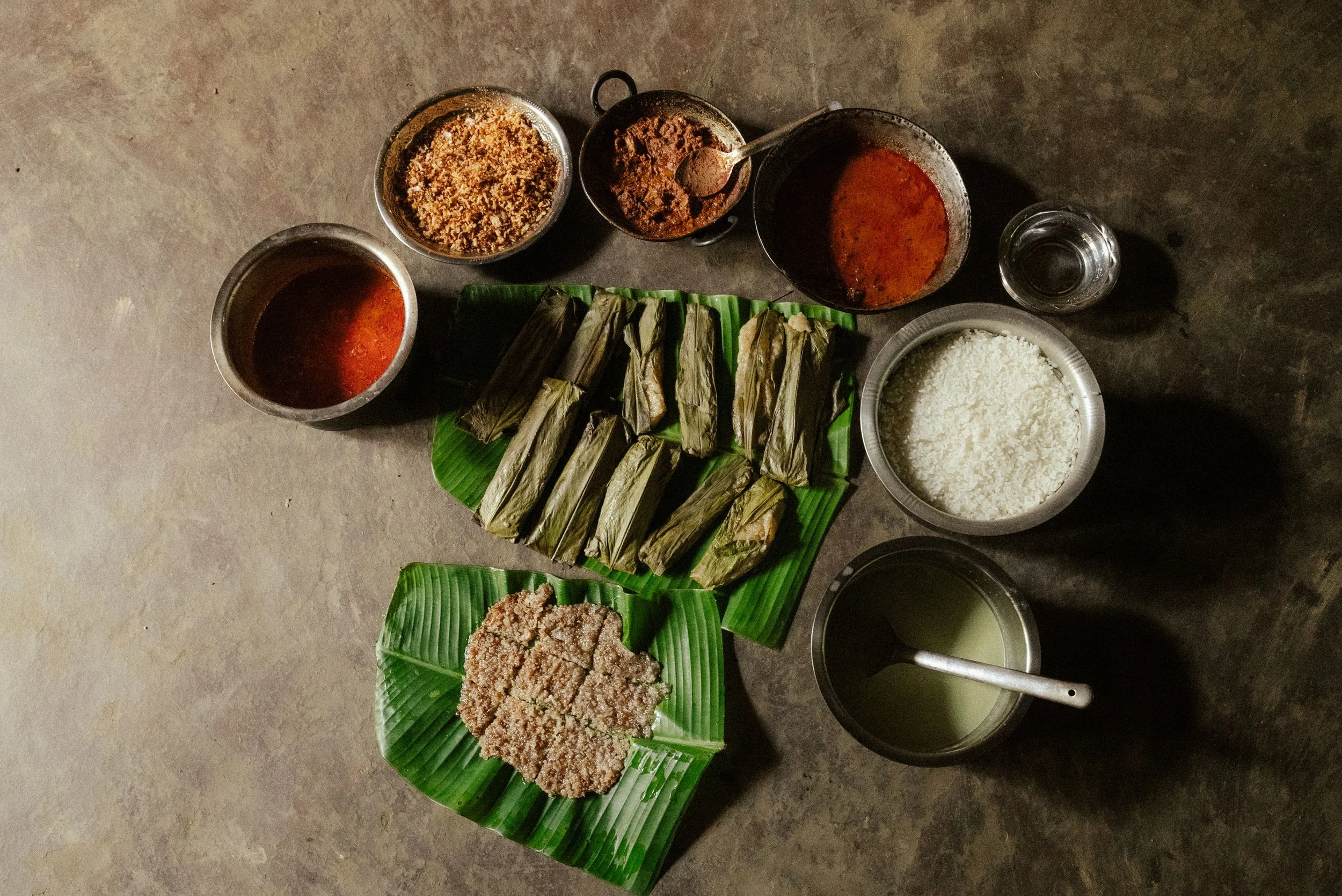
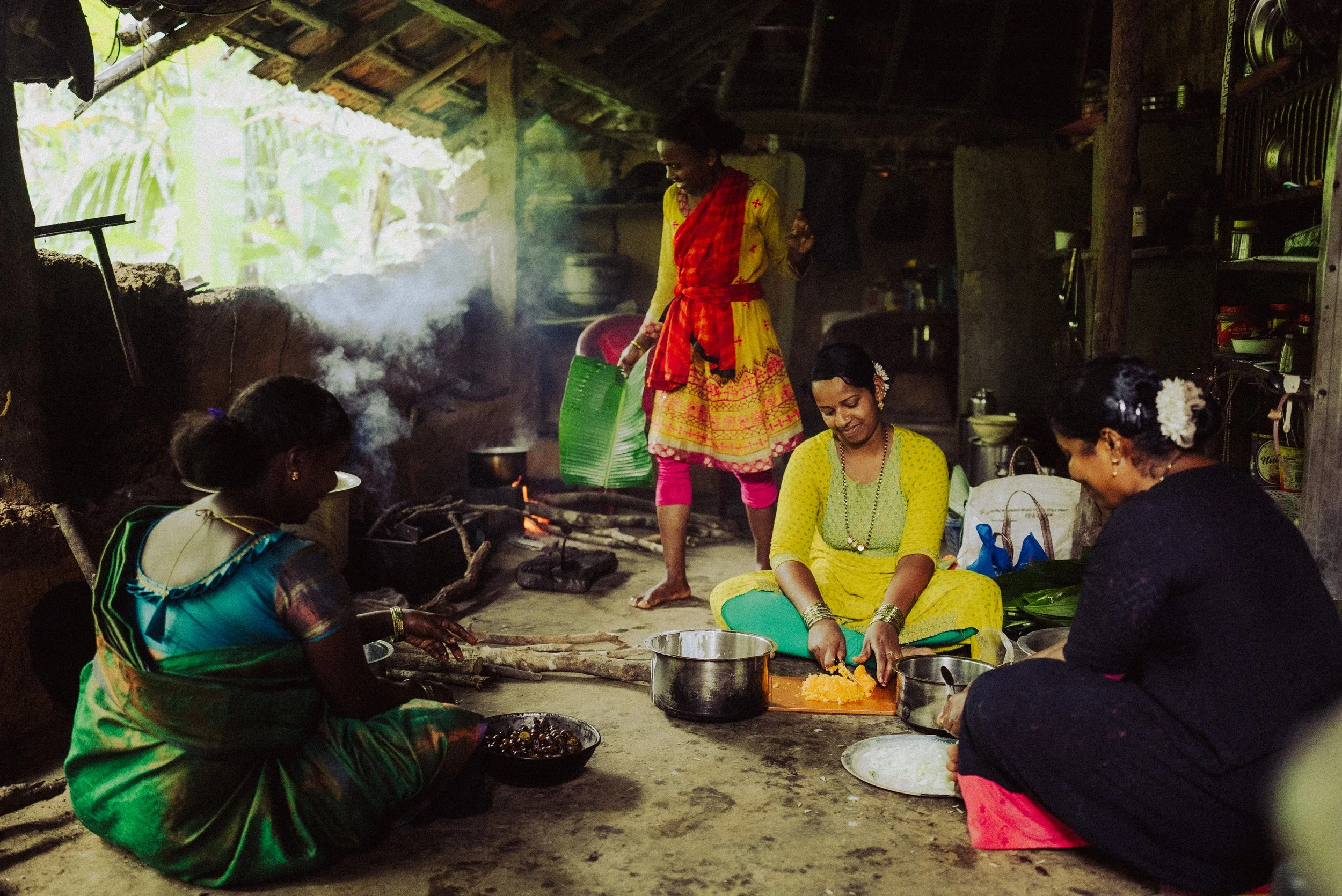
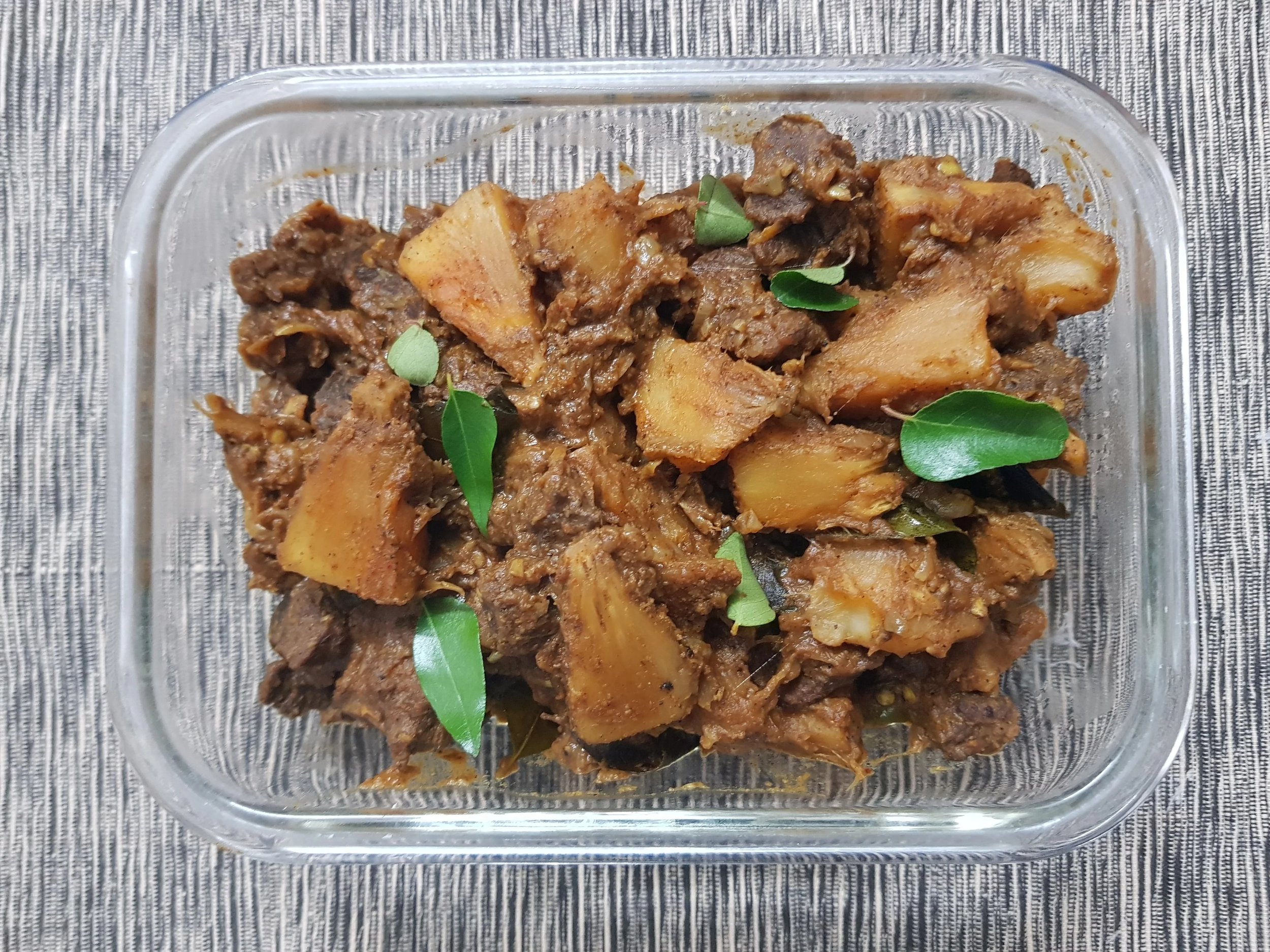
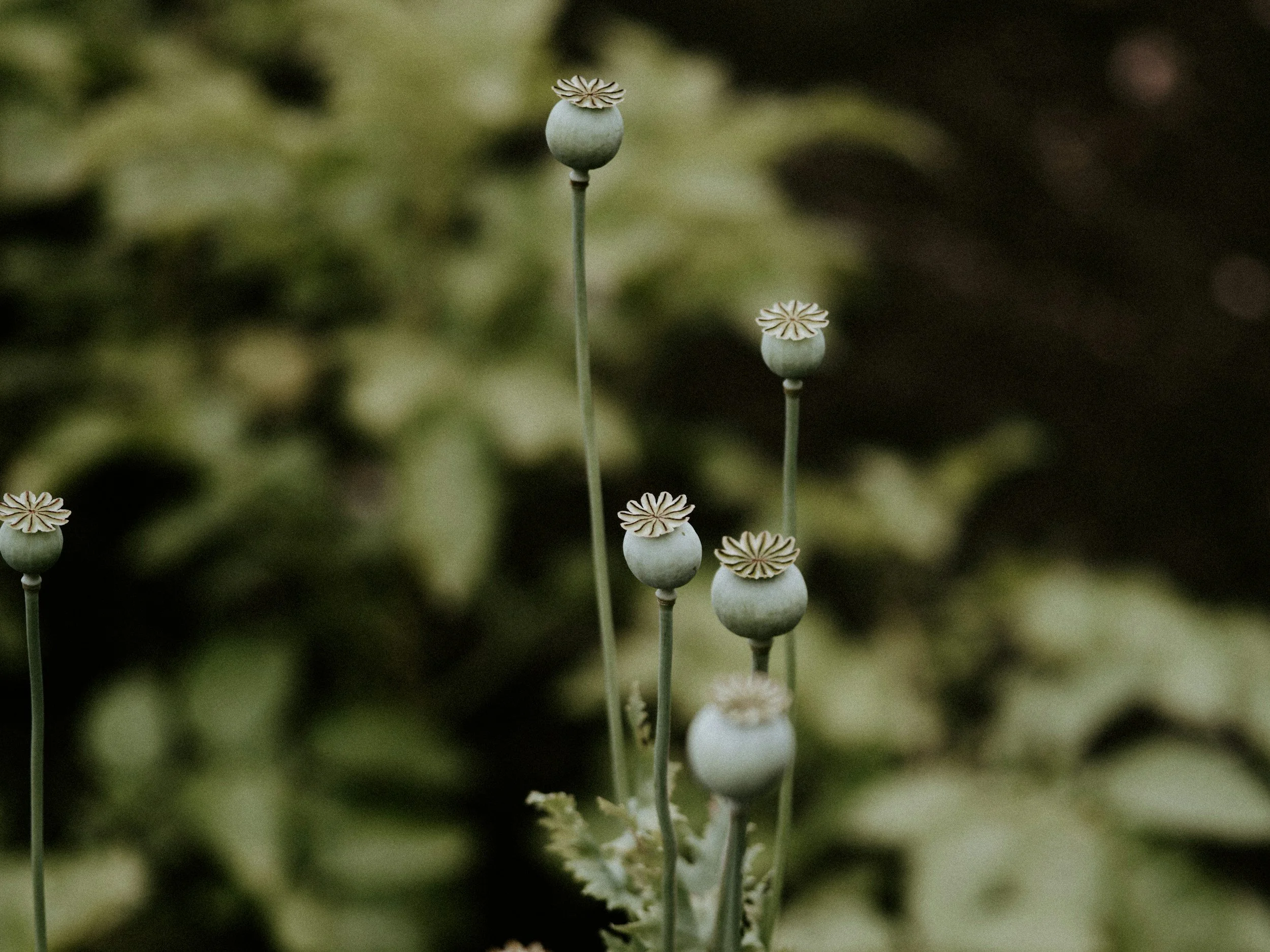
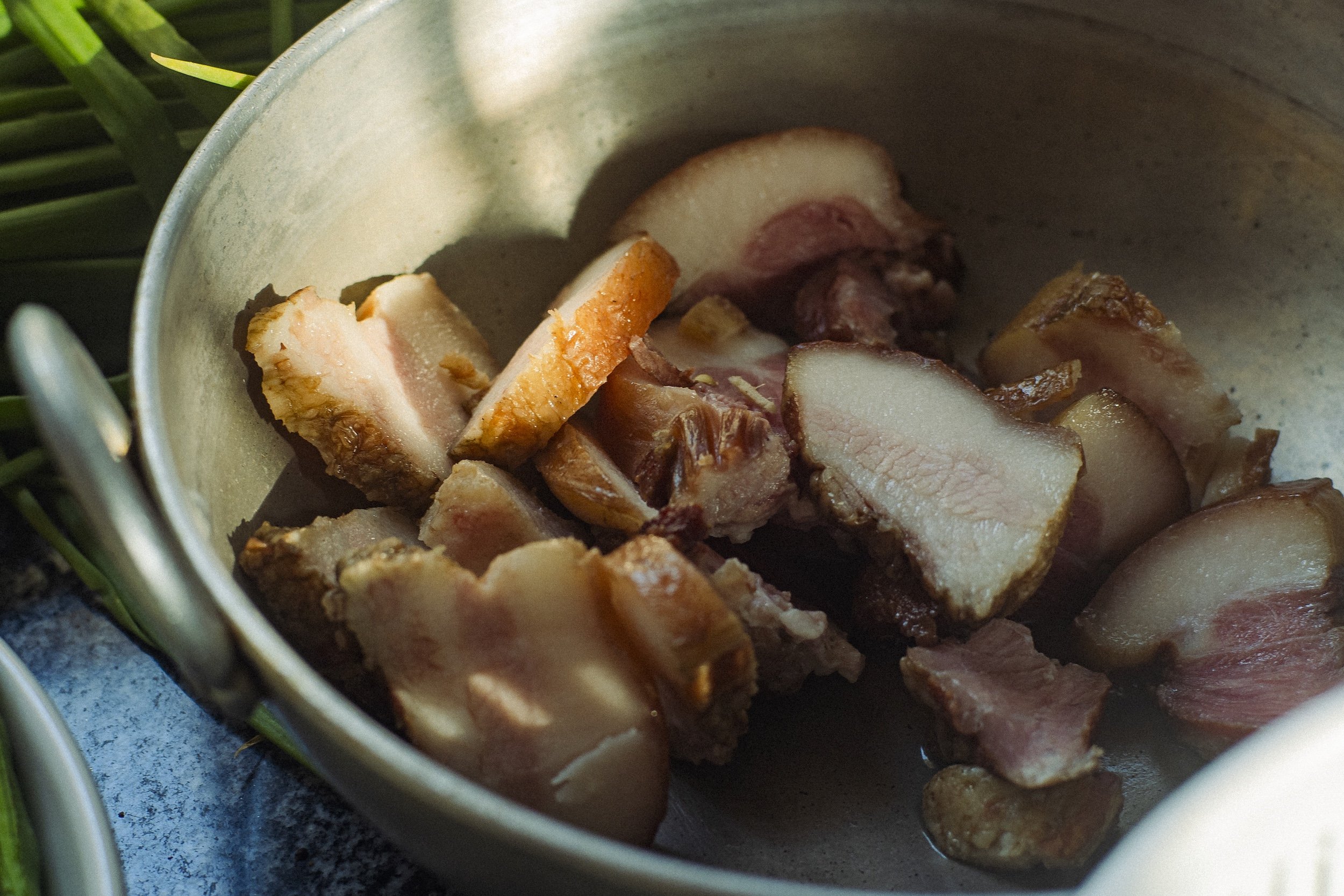
Neo-nomad cuisine of Central Asia | Terrence Manne